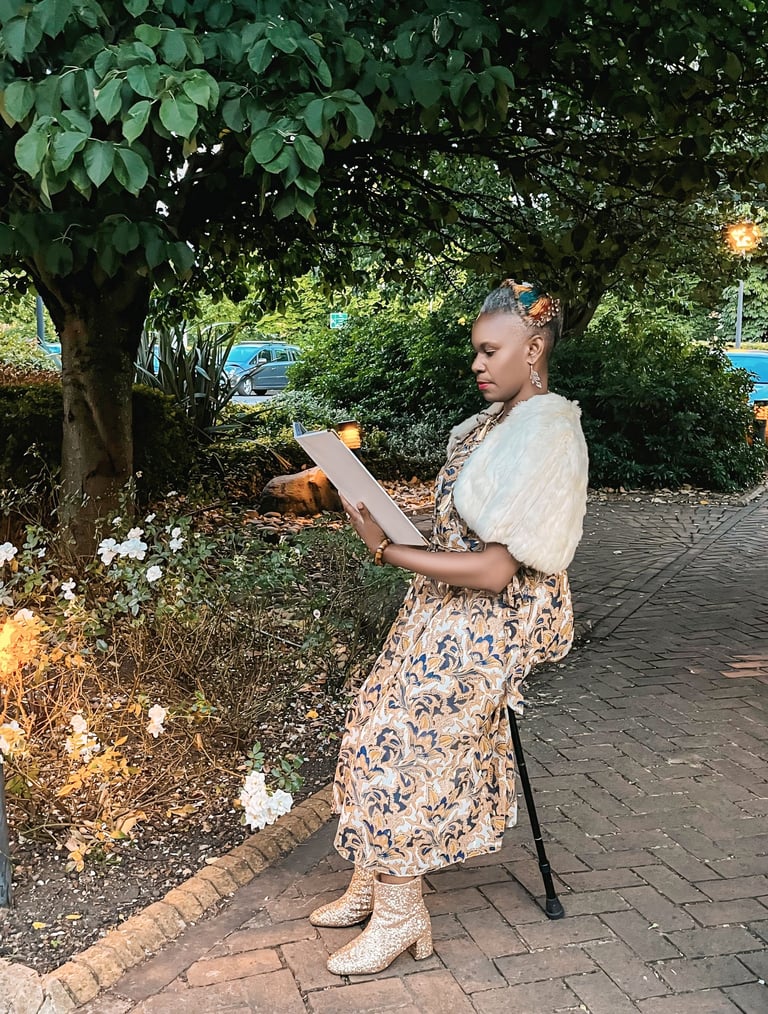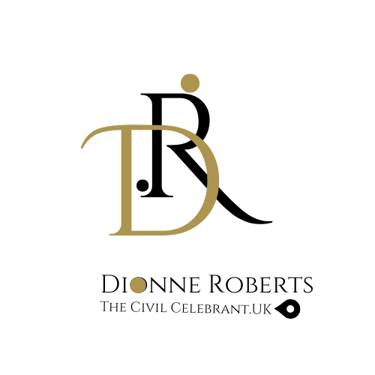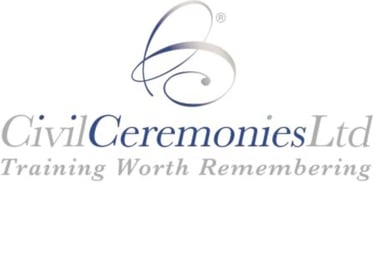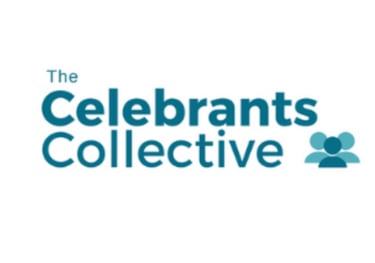

About Me
In A Few Words
I’m Dionne—a family celebrant, spiritual guide, and sacred space-holder for life’s most meaningful transitions. My work weaves together my lived experience as a Black, bisexual, disabled Buddhist woman with decades of experience as a holder of healing spaces, spiritual teacher, and healthcare professional.
For me, this isn’t just a profession—it’s a deep calling. Ceremony is where we pause, mark the moment, and meet life with reverence. Whether you’re welcoming a child, honouring a love story, saying goodbye to someone dear, or reclaiming your identity through a naming ceremony, I’m here to make sure your truth is seen, heard, and honoured.
Why Me
Rooted in compassion, shaped by lived experience,
held in a sacred ceremony.
I’m Dionne—a family celebrant, spiritual guide, and sacred space-holder for life’s most meaningful transitions. My work weaves together my lived experience as a Black, bisexual, disabled Buddhist woman with decades of experience as a healer, spiritual teacher, and healthcare professional. For me, this isn’t just a profession—it’s a deep calling. Ceremony is where we pause, mark the moment, and meet life with reverence. Whether you’re welcoming a child, honouring a love story, saying goodbye to someone dear, or reclaiming your identity through a naming ceremony, I’m here to make sure your truth is seen, heard, and honoured.
As a Black celebrant, I bring with me cultural depth, ancestral respect, and the ability to hold space for traditions that have long been overlooked or excluded from mainstream ceremonies. My lived experience as a bisexual woman allows me to create truly inclusive, non-judgmental environments where LGBTQIA+ individuals and couples feel not only safe, but fully seen and celebrated, without ever needing to explain who they are. Living with a disability has taught me the value of presence, adaptability, and care. I honour the importance of accessibility, pacing, and emotional sensitivity in shaping and conducting a ceremony. And as a practising Buddhist, I bring compassion, mindfulness, and reverence to everything I do—whether a ceremony is spiritual, secular, or somewhere beautifully in between.
I’m known as a family civil celebrant because I offer services for each stage of a person's life. My mission is to help individuals and families celebrate their milestones, honour life passages, and offer transformation and peace. Whether at home or abroad, it’s my privilege to meet you where your story unfolds. I’ve reached an age where all my life experiences have accumulated to this point, where my skills, talents, and strengths combine beautifully to serve others in this way. What I love most about my work is accompanying people on their journey and participating in the co-creative process and expression of ceremony.
Menopause ceremonies hold a deeply personal significance for me, rooted in my own transformative journey. As I navigated through the shifts and challenges of menopause, I discovered the profound importance of consciously closing doors for healing while opening others to embrace life not as something done to you, but for you. I was compelled to create sacred menopause ceremonies as a way to offer women a supportive and empowering space to navigate and transform this profound life transition. These ceremonies are not just about marking the end of one phase and celebrating new beginnings; they also bridge the gap between these transitions. During the ceremony, knowledge is shared, support is experienced, and powerful tools are offered for self-discovery, so you leave feeling whole and complete.
Plus, I love MAFS. When I saw the first one was back in 2010/2011. Way back when, we saw all the science before they matched each couple. This was all before MAFS became the phenomenon it is today, available to stream internationally. It was a UK pilot, and there was only one celebrant. A Black woman with braided hair had a speaking role. She spoke on the role of spirituality in unions and the compatibility of couples. When I saw her, I had a visceral response, of “that’s me, I could do that job”—from the top of my head to the tip of my toes and deep into my gut. I decided there and then, “I will do it when I'm older.” I was about forty and already amid a transition, travelling around South America. So, I put an age limit on it, and the time is now.
As for my desire to work in the funeral industry, that began much earlier during a time when I lived in a Western monastery. I asked if I could be the chaplain; unfortunately, they wanted me to continue managing the textile department, where I made clothing for the ordained sangha, Buddhist statues, and furnished temples. So I did—but my desire to work with grief never left me. By the end of my time at the Buddhist centre, I had already begun to follow that path, working part-time outside in the Macmillan unit and both mental health and general hospitals as bank staff. Although I never wore the title of chaplain, the calling to walk alongside those in grief never left me—it simply waited, deepening with time, until it could be fulfilled in my way, with heart, presence, and purpose.
Now, the time has come to answer that calling fully. When you work with me, you receive more than a celebrant—you’re held by someone who blends spiritual presence, compassionate care, and practical experience in equal measure. Whether your ceremony takes place in a city hall, a forest glade, or by the sea in another land, I bring the same grounded presence, reverence, and care. I bring a deep understanding of both love and loss to every ceremony I lead—because this work isn’t just timely for me, it’s profoundly necessary for the families I serve.
For more information, please schedule a consultation.




